In excess: Keith Urban’s musical highs amid hard-earned sobriety
It’s easy to look at him and see a man who appears to have it all, including a movie star wife — a fine recipe for writing off an artist who’s long been one of Australia’s most successful musical exports. This, however, is a mistake.
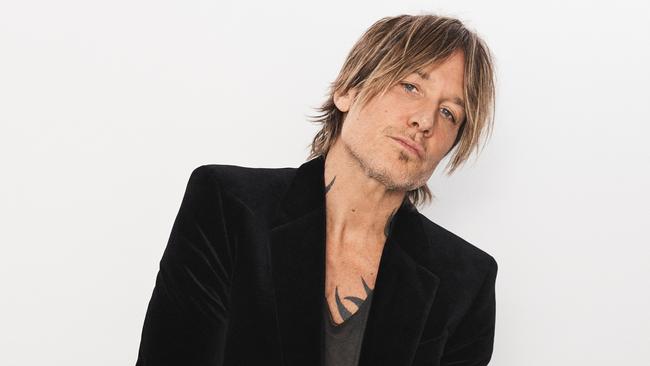
A man walks into a bar, slips on to the stage, shoulders a guitar and begins playing music. It’s what he’s been doing long before anyone in this small room had ever heard his name, and well before he became a chart-topping country rock performer par excellence.
After the first song, Keith Urban casts his eyes into the crowd – lifting his gaze from those right up the front near his boots to those perched up in the balcony at the far end of the space – and announces with a grin: “I can tell this is gonna be a loose one!”
Soon he’s joined by bassist Jerry Flowers and drummer Terence Clark and, as they settle in behind their instruments, Urban establishes an easy rapport with the crowd of 300 gathered inside Lefty’s Music Hall in Brisbane, the city where he once plied his trade as an anonymous jobbing musician.
“You can yell requests,” he tells us. “We won’t play ’em – but you can yell whatever you like.”
This venue is rarely booked by touring national artists, let alone acts who regularly book and fill arenas across Australia and stadiums in his adopted home of the US, where Urban has lived in Nashville for about three decades. Yet when he emerges to a hero’s welcome on a Thursday night in early September, he becomes easily the biggest star to have trod these boards.
There’s a mezzanine level at Lefty’s set above the bar and, oddly, a small balcony wrapping around the stage that he affectionately refers to as a “ship’s stern”. No matter which way he turns tonight, the singer-songwriter-guitarist is surrounded by fans thrilled to be seeing him play in such an intimate locale. Very quickly, it becomes apparent the feeling is mutual.
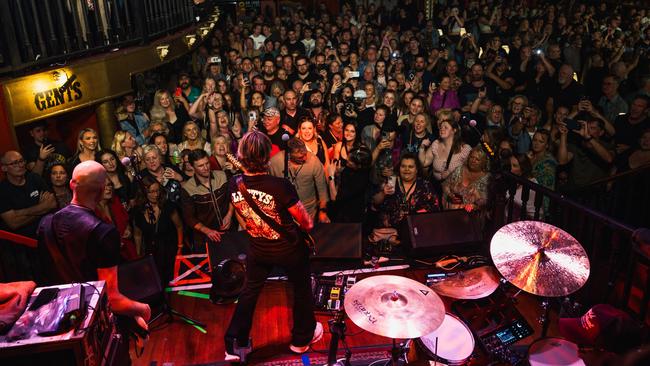
Urban has 10 albums to his name, but soon that number will increase by one more with a new set titled High – an adjective attached not to intoxication in the drug-taking sense, but the euphoric sensation this man feels when he’s in a flow state of playing music, the enduring love of his life.
That feeling of euphoria spreads throughout the room and beyond; there’s a Brisbane Broncos rugby league game happening at Suncorp Stadium just down the road, and outside, on Caxton Street, a couple of dozen people are staring through the venue’s front door and up the stairs.
They’re wishing they could see what sounds like a great gig, as Urban and his superlative band – later completed as a quartet by Maggie Baugh on guitar, mandolin and “ganjo”, aka six-string banjo – run through a set of old favourites, new songs and in-betweeners.
Urban sports a tight-fitting black T-shirt emblazoned with the venue’s name, which he claims to have stolen from Lefty’s. “It’s good to have a second job,” he cracks, and we laugh, because we all know the garment was gifted to him.
Entry to this exclusive gig was priced at a reasonable $50, and sold out immediately; for $60, fans scored a ticket and an album download of High, a record label strategy that will help sell a few more albums in order to boost its chances of topping the ARIA chart in its first week on sale, as three of his previous releases have done.
Though this concert is tacked on to a brief promotional visit that included a similarly small concert in Sydney, there is no sense of going through the motions. Instead, the band serves up a proper arena-sized gig that happens to be played in a tiny room with minimal production; no video screen, and the side-stage guitar technicians simply pass instruments over the “stern” to Urban and Baugh as needed.
What the frontman said earlier about requests? He lied.
Turns out he can, and does, entertain them; if a song eludes him in its entirety, he starts scatting the lyrics, has a crack at finding the rough chords, then cuts it off after the first verse. “Next!” he says, proud of himself for at least finding the opening to an almost-forgotten track from his deep discography.
As the requests keep coming his way, he grumbles with a smile: “This is turning into a game of ‘Stump Urban’.” When someone calls out But For the Grace of God – a track from his 1999 self-titled US debut – he looks down at his guitar, thinking through the chord progression in fast-forward, then nods in assent by introducing it with a quip: “This was my first No. 1 in America – and you never forget your first.”
Rather than a strict set list taped to the floor near his pedalboard, there’s merely a song list that acts as a guide. With an ease and poise possessed by few major headline performers today, he calls songs on the fly and expects his bandmates to keep up, which they do. He starts the gig with an Australian-made Maton acoustic in hand, but appears to prefer plugging in a Telecaster and letting rip; he goes on to spend much of the show working the fretboard with the practised ease of an elite shredder.
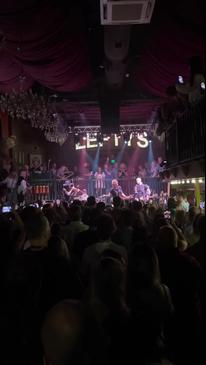
As well as a stack of tracks from his own catalogue – including a handful from the upcoming album, which go over well, and earn the band leader’s approval as he trades pleased looks with his colleagues – Urban indulges in singing the songs of others with a gusto that connects a straight line to his early days as a pub covers performer, playing top-40 hits while also trying to work up the chops and courage to toss his own compositions into the live mix.
Among those to get a workout tonight are The Joker by the Steve Miller Band, the beer garden stable I’m Gonna Be (500 Miles) by The Proclaimers, Bad Habits by Ed Sheeran and a left-field pick in the shape of Rush by Big Audio Dynamite.
As well, there’s a couple of choice nods to the soundtrack of the nation that raised him: he briefly detours into The Angels’ Am I Ever Gonna See Your Face Again – during which the crowd gladly fills in the famous shouted rejoinders – and he also throws in a mostly solo take on Cold Chisel’s Flame Trees, a song that appears to be entirely unfamiliar to his American bandmates, but is gladly sung en masse by the locals.
This isn’t an artist on the downswing; he isn’t doing these small shows to meet any personal or industry goals. Instead, he’s clearly a performer at the top of his game who has the desire – the need, perhaps – in him to occasionally shoot back to his roots by booking massive underplay club shows such as this, in tandem with selling out arenas here and stadiums in the US.
Nobody would have walked away disappointed if Urban had cut the show off after an hour, or even 90 minutes – but these are true players, and playing is what they do, gladly. He makes a point of thanking the bar staff for taking care of our needs, and finally farewells us after a mammoth 135-minute set, which concludes with a trio of his most popular songs in Somebody Like You, Blue Ain’t Your Colour and Wasted Time.
As the house lights flick on to the stuffed beasts and peacock hung from the wall opposite the bar, we spill out on to Caxton Street, which is still closed off by police cars and traffic barricades due to the nearby league game, which has just finished. The Broncos have spent their evening getting flogged by their opponents on the spotlit green patch nearby, drawing a sad end to a poor season for the city’s favourite sporting team.
Scores of glum faces of all ages in maroon-and-gold insignia trudge up the hill. But inside Lefty’s tonight there were no losers, only winners, who gladly trickle back out into the Queensland capital’s arterial streets to their homes with clear eyes, full hearts and the songs of one man humming in their minds.
It’s easy to look at Urban and see a preened, tanned, muscled bloke who appears to have it all, including a movie star wife named Nicole Kidman with whom he has two daughters. For non-country music fans, dismissal has been a default response, perhaps edging into resentment for some who feel threatened by the sight and sound of what Urban represents.
Throw in a little tall poppy syndrome that sees scores of Australians spurn their own for getting too big, too much, too fast, and it’s a fine recipe for writing off a man who’s long been one of the nation’s most successful musical exports.
Born in New Zealand in 1967 and raised primarily in the Queensland regional city of Caboolture, 51km north of Brisbane, Urban began strutting his stuff on our shores, including winning the Tamworth Star Maker contest for emerging musicians in 1990.
But after leaving school at 15 and diving straight into the covers-heavy world of five gigs a week, four hours a night, he eventually gained the gumption in the early 1990s to take his unique style to the land where it all began: the United States of America, where many of his country heroes grew up and strode the lands while carrying their songbooks and their guitars from town to town.
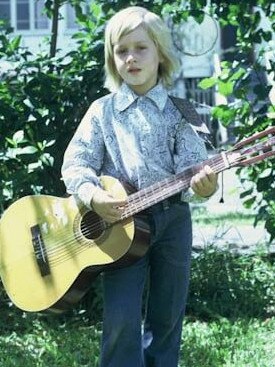
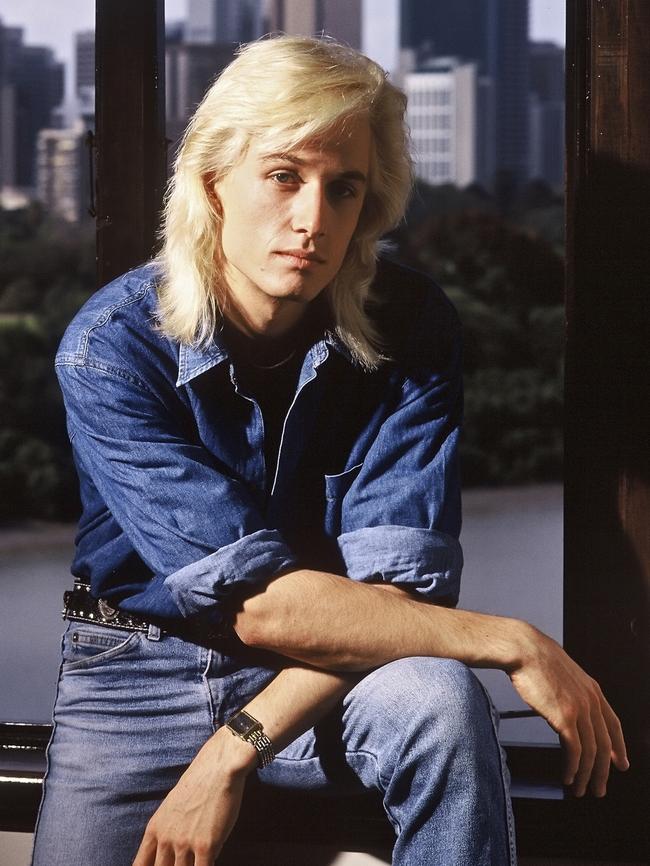
It took about eight years of grit and determination to build an audience there and break through, and that’s the part of Urban’s story that is often forgotten: he is as hardworking, persistent and bloody-minded as a musician can be.
Even his detractors must admire the long, hard road he walked to eventually become the mass-market, mainstream performer he’s been for 20 or so years – chiefly in the US and Canada, the North American countries where country is king, as well as regular trips back to Australia, where he’s been booking arenas since 2003.
At a South Bank hotel the morning after setting Lefty’s alight, Urban floats into a meeting room wearing loose black pants, white shoes and a dark T-shirt bearing a brightly coloured graphic design. He’s a man at ease, so laid-back he’s almost horizontal, and when he takes off a black striped jacket to hang on the chair behind him, he reveals a tattoo on his right bicep bearing his wife’s first name.
We shake hands, and with his piercing blue peepers he holds eye contact steadily throughout Review’s hour or so in his company, rarely looking away. Having seen him in his element the night before, there’s much to discuss, starting with what attracts him to play club shows at all these days.
“A lot of things,” Urban, 56, replies evenly. “I mean, as a guitar player, to just have an amp right behind me; it’s as basic as that. I love playing guitar, and it sounds very selfish, but I like an amp right behind me. When you play in an arena, it’s an amazing thing to do – but you can’t have the amp literally behind my shins. And when the band is close, a magic thing happens. If I could, I’d have everybody packed in like that at the (Brisbane) Entertainment Centre – but it would look ridiculous,” he says with a laugh.
Urban was 17 and in the thick of his hardscrabble early years gigging in Brisbane’s many beer gardens, great and small, when Cold Chisel released Flame Trees in 1984. What did learning to perform classic songs such as that – co-written by Chisel drummer Steve Prestwich and pianist Don Walker – teach him about effective songwriting?
“I think a general feeling for what audiences sing along with: tempos, cadence, melody, all this stuff,” he replies, leaning back in his chair. “And I mean, I don’t know that it’s literally something that comes into my songwriting, but I think it’s stuff that I like. I like big-hook choruses – and at the end of the day, I write stuff that I like. I like fist-pumping choruses that are easy to sing along with – and those sorts of songs, you can never have enough of them live.”
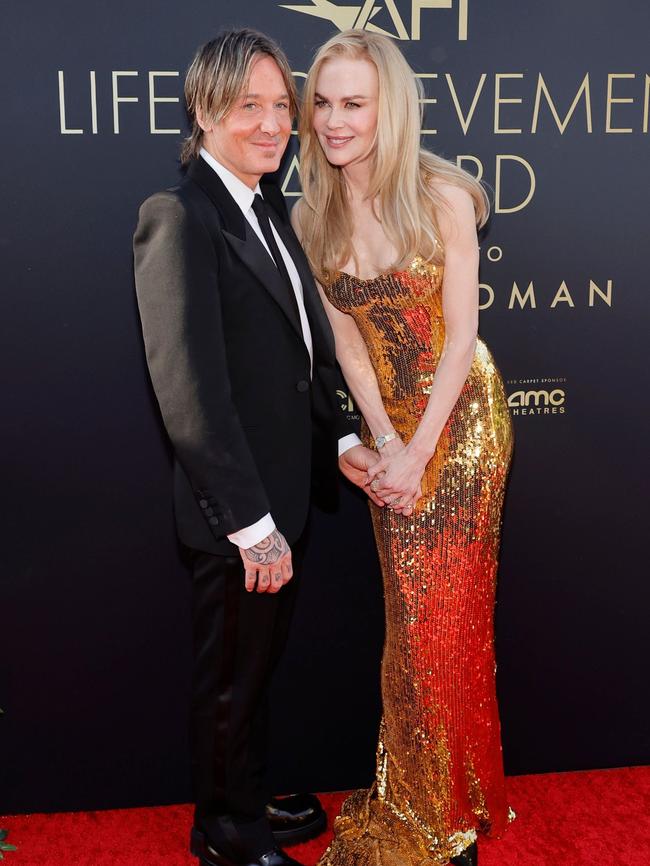
Urban considers himself not as an Australian artist, but an artist from Australia. Asked about the distinction between the two, he replies: “I always thought an Australian artist is someone that has something that’s uniquely Australian in its feel and style; something that makes it very Australian. I didn’t go to Nashville to sing in an Australian accent, and sing about Australian things; I’m an artist who just happens to be from Australia.”
To illustrate his point, he draws on Crocodile Dundee – an Australian character – and Paul Hogan, an actor from Australia who played many characters across his career.
“I wasn’t in Nashville to fly the bloody Australian flag; I’m just an artist. And when people go, ‘Oh, so now, please welcome Australian artist …’ – I’m like, ‘No’, because then people are expecting every song to be True Blue,” he says with a laugh, referring to John Williamson’s 1982 country/folk standard.
“But I’m very proud of the Australianisms in what I do, because of playing in the clubs,” he says. “That, I’m very, very proud of. I mean, it made it so difficult when I got to Nashville, because I wasn’t like anybody else, and that was all from (growing up in) Australia – but it’s ended up being the thing that’s allowed me to be unique and original.”
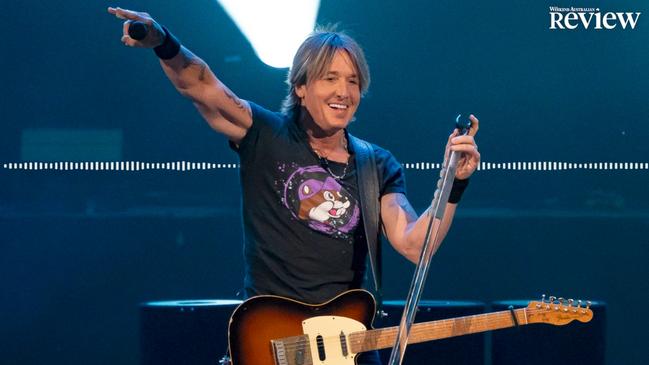
When he returns next year to tour High properly, it’ll be nothing like what unfolded in the tight confines of Lefty’s: he will indeed play two nights at the Brisbane Entertainment Centre, and other big venues on the east coast and in Adelaide. Yet that dichotomy between playing both small-scale and large is important to him.
“I use this weird analogy about the dog and the tail wagging. Last night? That’s the dog, and if the dog is healthy, the tail will wag, and we’re all good,” he says.
“But I think the bigger a career can get, everybody can start getting obsessed with the tail, and lauding the tail. It’s almost like the tail becomes the business, and it becomes everything – and the poor little dog, the foundation of it all, gets neglected. Musicianship, playing well, entertaining, connecting – the dog, the centre of it – can get neglected in the largeness. When it all gets scaled up, I think it can all get a bit thinner. So I wanted to get back to the dog, and make sure the dog’s healthy.”
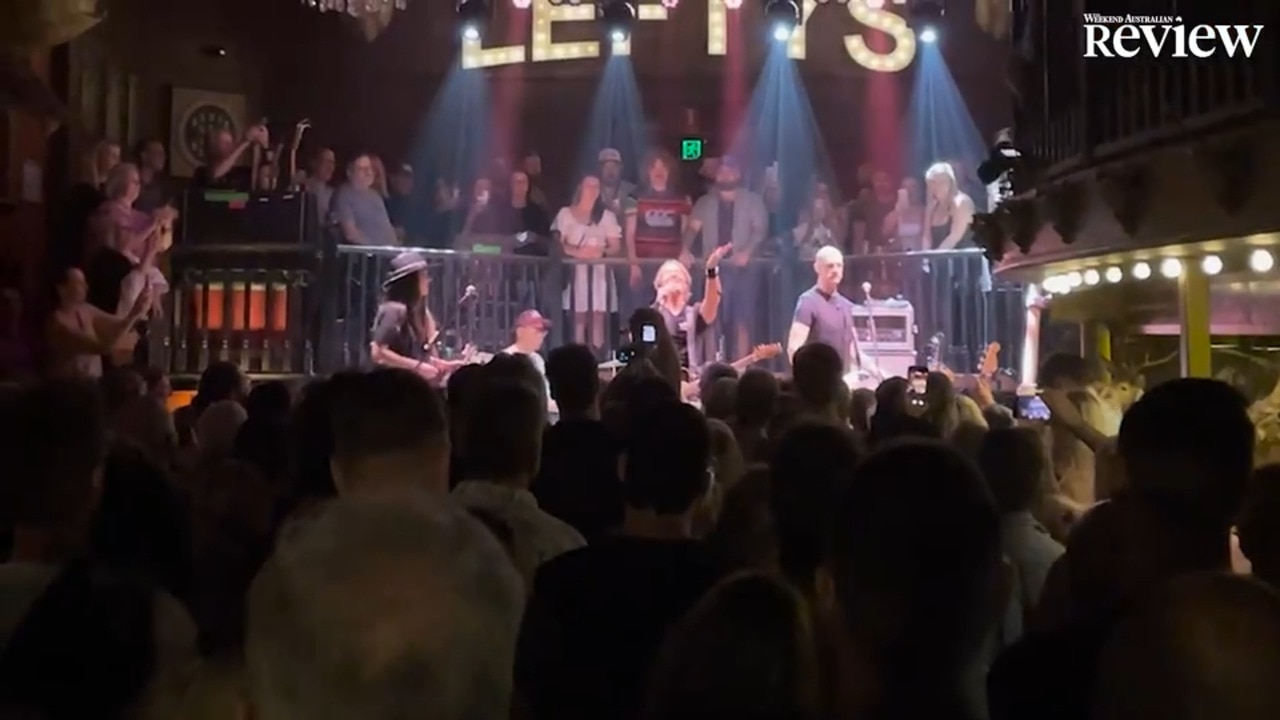
As well, there’s “the sheer simplistic joy of playing that isn’t about numbers or visual effects or anything. It’s right back to the very, very foundation of it: make sure it’s solid. Make sure the players are good, the songs are good, everything’s solid – and then we can start putting all the whipped cream back around it”, he says, laughing.
True enough, there was no whipped cream in sight last night, but his thirsty fans were certainly exchanging cash for booze with vigour, as is tradition at gigs since before Dylan went electric. Urban famously abstains, having previously struggled with alcoholism and cocaine addiction. What does his sobriety mean to him today?
“Gosh, a lot of things,” he replies. “Over the years, I’ve talked very, very little to not at all about it; mostly because I never want people thinking I’m against grog or drugs – which I’m not, at all. I’m just allergic to ’em. That’s it.”
“But I sing about ’em,” he says. “My audience does what they do. F..k, my album’s called High, and that’s intentional. So it’s a very personal thing, my sobriety, because it can be misinterpreted by people. People often interpret it as being anti-grog, and I’m not that at all. And then people might think you’re hypocritical, singing songs about drinking when you don’t drink. I’m like, ‘Well, f..k – I used to!’.”
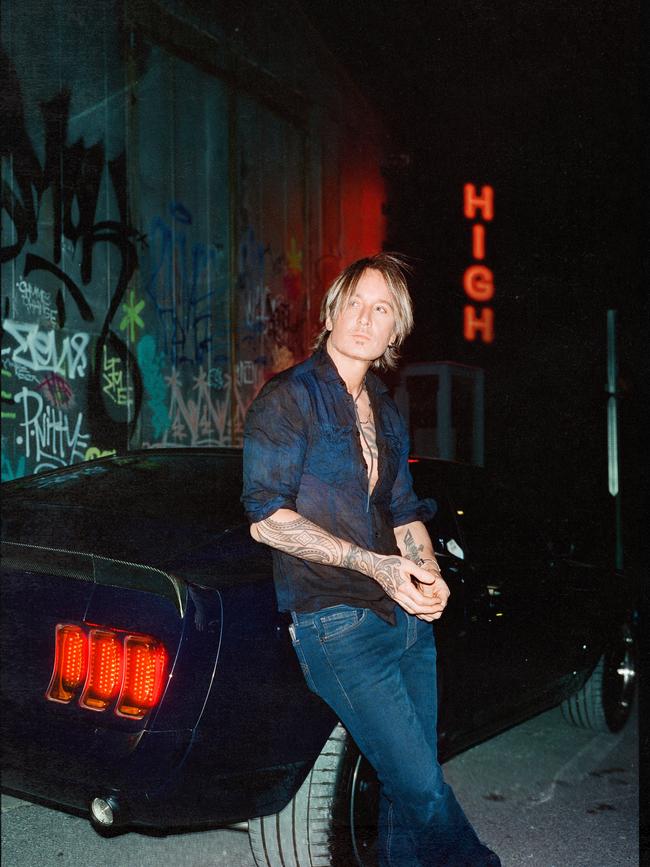
Urban once heard a fellow sober traveller observe that some people who go through recovery end up much better than they ever were before addiction began to rule their life. As a world-class guitarist, he heard a clear musical analogy, too.
“It occurred to me: it is remarkable that guitar repairing has gotten to the point where you can snap the bloody top of the neck off, glue it back on, and have it stronger than when it was a tree,” he says. “Sometimes we’re stronger for the break.”
Booze does tend to appear frequently in his song lyrics, including on High, whose song titles include Messed Up As Me and Laughin’ All the Way to the Drank. It’s clear from the consumption at Lefty’s – and presumably every other gig he plays – that he’s in the minority, yet he feels no need to preach or convert anyone to his cause.
“Oh, God, no,” he replies, a horrified look flashing across his face. “I’ll serve it in our house; people come over and I pour wine. I have no problem with it. Someone said in recovery one time, ‘I’m allergic to it’. It’s like someone going, ‘I don’t eat onions’. Well, I’m not anti-onions. I don’t hate people that eat onions; I just don’t eat them. I don’t freak out if I see onions in front of me, I just go, ‘Ah, I don’t eat them’. It’s nothing more, nothing less.”
“It’s just an allergy; it took me years to find out I have an allergic reaction. So, not good for me; good for other people. I love playing to a drunk crowd, trust me – they’re way more fun,” he says with a laugh. “You know, they have dry counties in America; places where they don’t serve grog. Those gigs are miserable! Like, ‘Jesus, would you guys go and do something?’.”
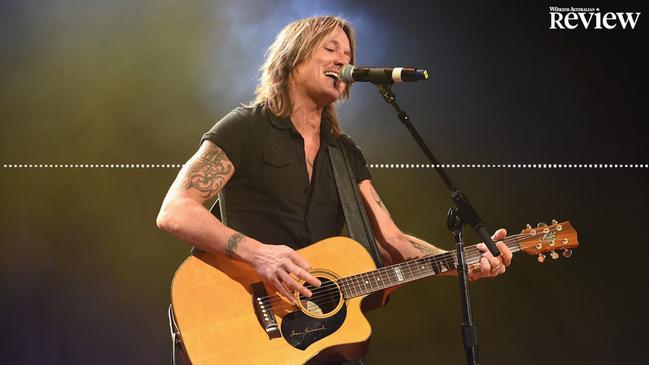
As a sober person, then, what does his new album title mean to him? “Last night was a high,” he says – a high-octane, highwire act he admits it took an hour for him to come down from. “It’s an amazing feeling. I’ve had skiers say to me, ‘Do you like skiing?’. And I’m like, ‘Not really. I’ve done it a few times …’. And they go, ‘But nah, when you’re going down the mountain, the rush, man, you’ve gotta do it …’. And I’m like, ‘Have you shredded a solo in front of 10,000 people? It’s a pretty f..king good rush!’. So I got my other places of gettin’ high.”
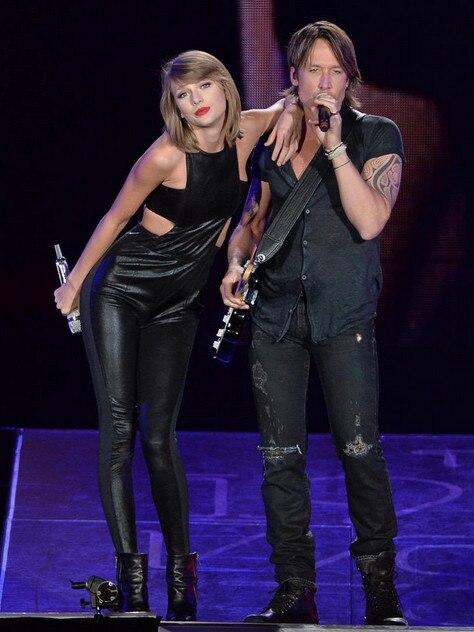
Through his doggedness, his career achievements, his guitar heroics and his songwriting skill, he has inspired legions of artists here and abroad, including Kasey Chambers – for whose forthcoming book he wrote a foreword – and country-turned-pop star Taylor Swift, who supported Urban early in her career, and said in 2021 that his music “has inspired me endlessly”.
Asked about the major imprint he’s made on fellow singer-songwriters such as Chambers and Swift, he leans back and gives a supremely humble, ego-flattening response.
“I’m just part of the long river of artists influencing other artists,” he says. “I mean, I’m in the river with all the artists who have influenced me, and it’s beautiful to be a part of that long lineage of curiosity-seekers, and people wanting to express things, and find ways to do it.”
When we stand up to say our goodbyes, he leans in for a hug, then glides out of the room as smoothly as he entered. Having only just reacclimatised to the Australian time zone, he’s hours away from a flight back home to Nashville, where his family awaits his return.
What lies ahead is more gigs great and small, more guitar solos, more crowd requests fulfilled and more natural highs, all of it flowing into an endless stream of notes, chords, beats and melodies that began flowing long before he was born, and will continue long after he’s gone.
High is out now via Universal Music Australia. Keith Urban’s nine-date High and Alive tour begins next year in Newcastle (August 13) and ends in Adelaide (August 28).



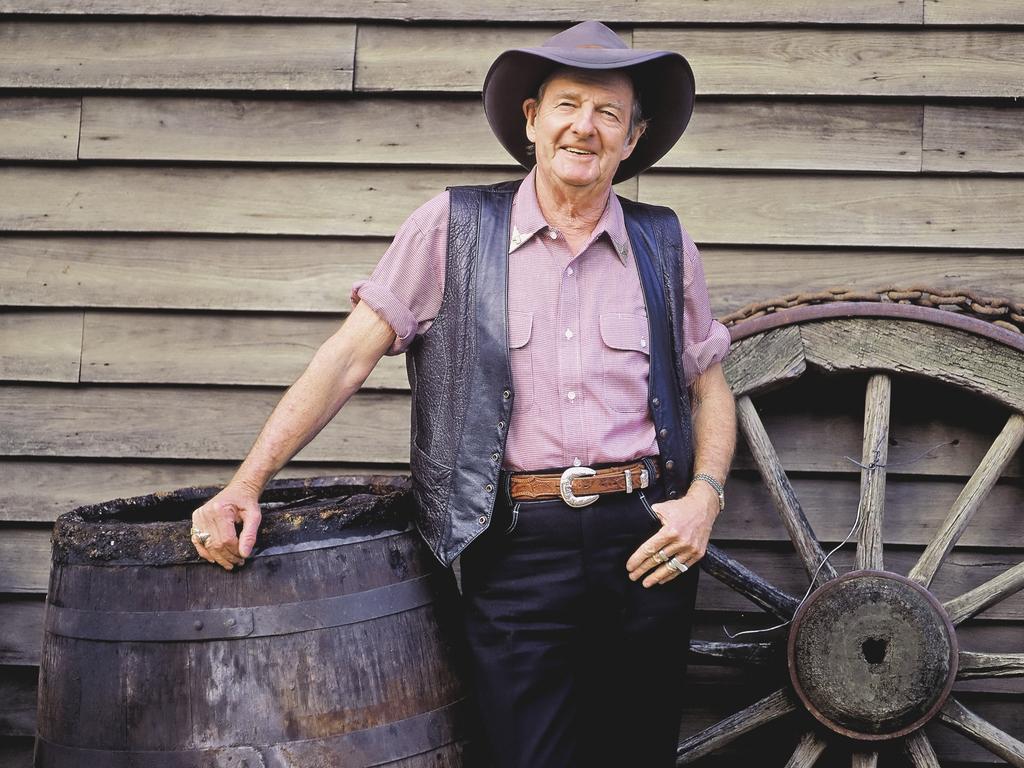
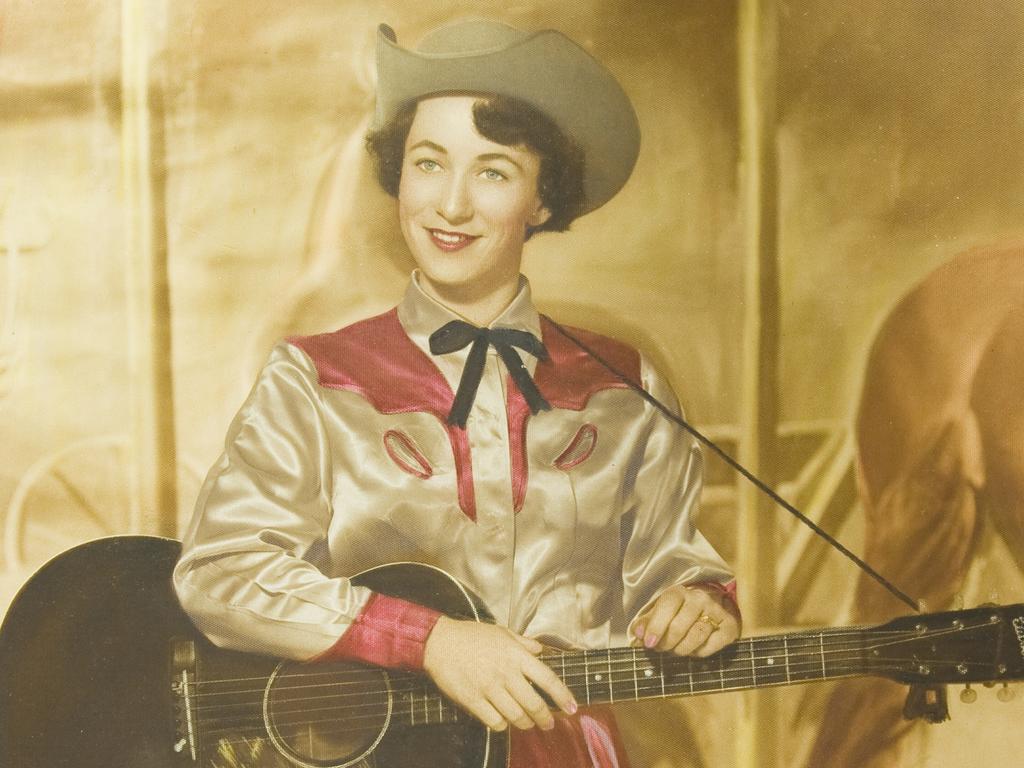
To join the conversation, please log in. Don't have an account? Register
Join the conversation, you are commenting as Logout